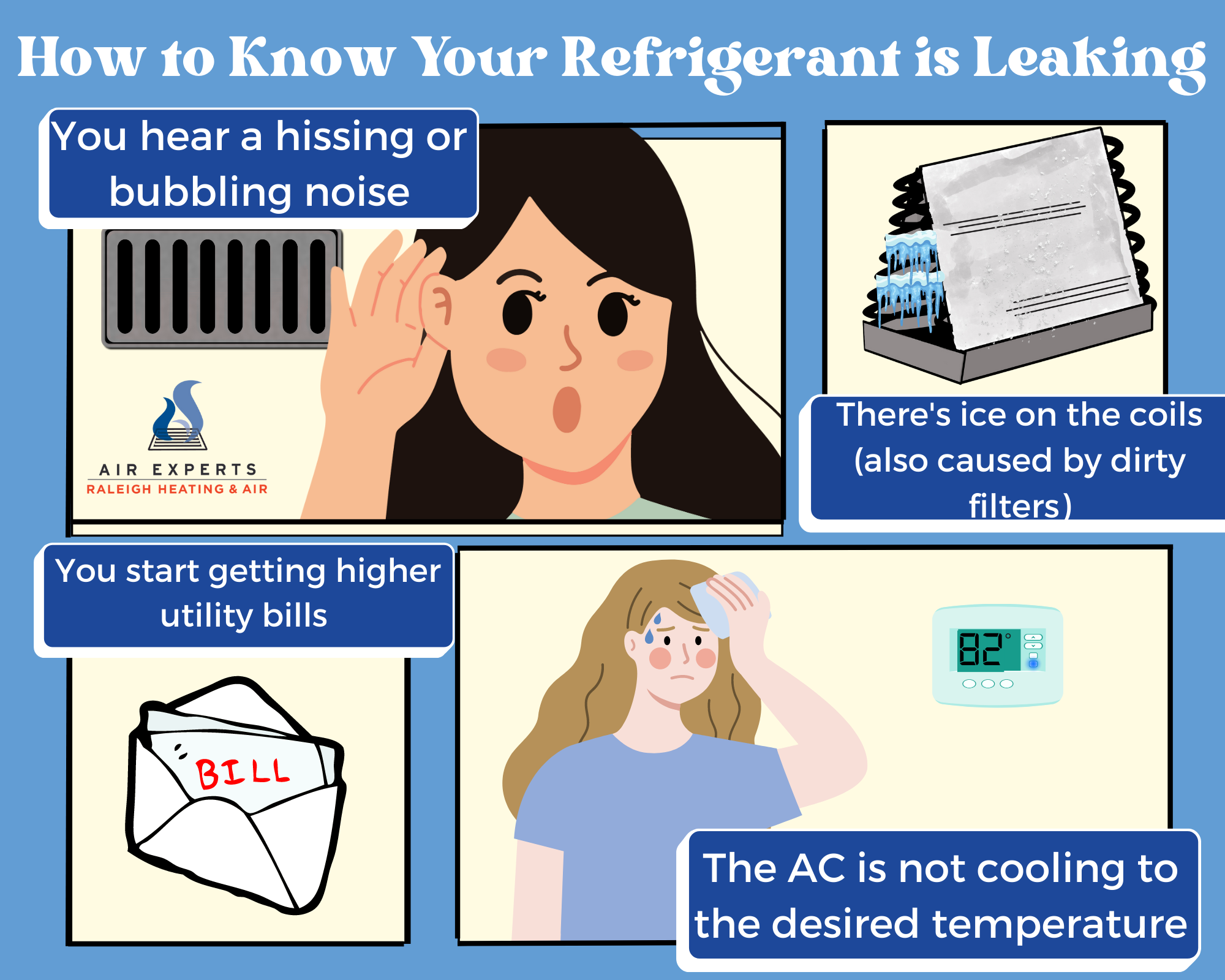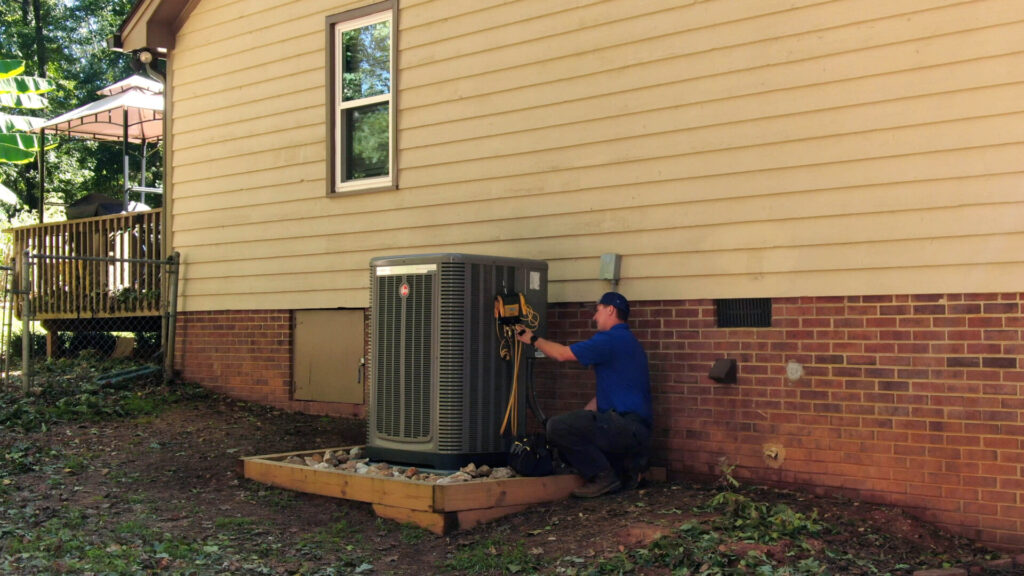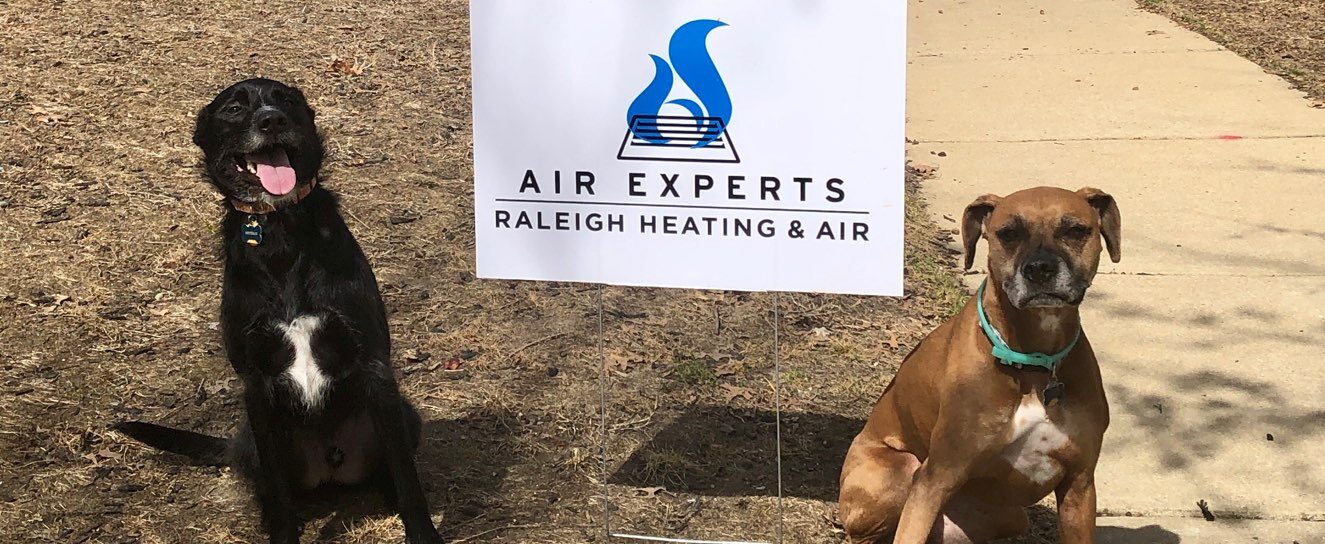5 Warning Signs You Might Have A Refrigerant Leak

Refrigerant leaks are difficult to detect since they are invisible to us. Here, we’ll explain several symptoms of refrigerant leaks and what you can do about them.
Nick Howard, one of our service professionals, responds to a call for an annual AC maintenance check at 10 a.m. on a Monday. After checking the thermostat and saying hello to an enthusiastic puppy, Nick goes upstairs to inspect the evaporator coils. When transitioning from their heating system to air conditioning in the spring, people often find that their house doesn’t get chilly. The owner of the house tells Nick she has been having this problem. Nick goes to the outside unit. After making sure the evaporator coils are in good condition and testing the capacitor, Nick checks the pressure of the refrigerants.
He finds the issue. The refrigerant pressure is too low, and this points to a possible leak.
Signs You May Have a Refrigerant Leak
Here are some signs to watch out for if you think your system may have a refrigerant leak because a variety of different circumstances can result in a leaking coil.
The following are some symptoms of a refrigerant leak:
- Evaporator coils covered in ice
- Hissing or bubbling noises
- Higher utility bills than usual
- Long cooling cycles ( Meaning it takes longer for the AC to reach the desired temperature than normal)
- Higher humidity levels in the cooling area

How to Handle a Refrigerant Leak
Get a service technician as soon as you can to your home. While a refrigerant leak means your home will have little to no cooling, it also means that refrigerant is leaking into the environment. There are two different types of refrigerant in use. R-22, whose use is being phased down because it depletes the ozone layer, and R-410A, a greenhouse gas that is less harmful than earlier refrigerant choices but is nonetheless a greenhouse gas. After inspecting your HVAC unit, one of our technicians will give you the repair options available.
If your HVAC system is older than 2010, getting a new unit will be more cost-effective overall in most cases. These models still use R-22, an old refrigerant that is no longer produced because of environmental regulations. This shortage has caused its price to rise significantly. Given its use of R-22 and its old age, repairing and refilling your old heating and cooling system will be more expensive in the long run. If you are worried about the upfront cost of a new HVAC unit, our Ease Comfort® Program makes changing your HVAC system simple and affordable.
If you found this post helpful, check out our other blog posts, subscribe to our YouTube channel, and follow us on social media for more HVAC and plumbing tips, information, and fun!





